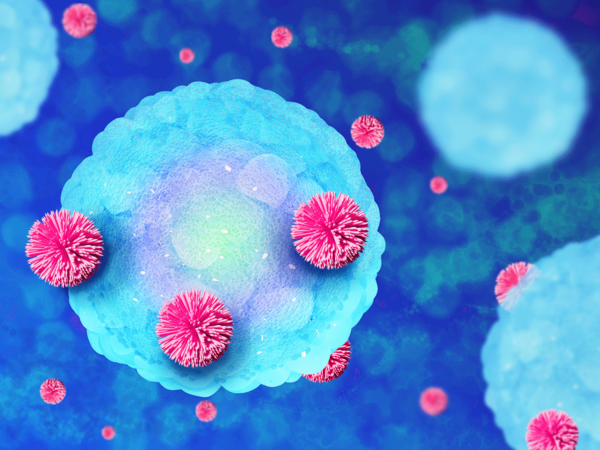Transforming drug development
Artificial intelligence (AI) is revolutionizing nearly every aspect of our work and personal lives, and the field of oncology research is no exception. With an estimated 20 million new cancer cases and 9.7 million cancer deaths globally in 2022, cancer continues to be one of society’s most pressing healthcare challenges. AI is transforming how we conduct oncology research, enabling us to improve patient outcomes and develop more cost-effective treatments.
Below we explore how AI is reshaping oncology clinical trials.
Advancing targeted therapies with new biomarkers
Precision medicine is a cutting-edge area of cancer treatment that holds enormous promise for patients. By leveraging AI algorithms, drug developers can process complex biological data to discover new biomarkers. This is a critical breakthrough for developing treatment plans that are tailored to individual genetic profiles, thereby improving patient outcomes and minimizing side effects.
Optimizing trial design with predictive analytics
AI is now being used to predict trial outcomes and recommend optimal study design, including sample size determination and endpoint selection. By examining historical study data from past trials and relevant literature, and simulating various scenarios, researchers can choose the best design to suit their investigational product and lower the likelihood of trial failure.
At Catalyst, we use AI-powered technology to aid in the evaluation of data to optimize country and site selection for our studies.
Accelerating development of startup documentation
Clinical researchers can now use AI to accelerate the development of study protocols, informed consent forms and other important study documentation. By allowing medical writers to automate repetitive tasks, they can devote their time to more bespoke elements and scientific insights. AI can expedite document creation with standardized templates, ensuring consistency and regulatory compliance. In addition, researchers are leveraging AI to draft entire sections of the protocol from existing data and previous study insights.
Catalyst is actively exploring how AI can assist with document review, completeness checks, and filing.
Overcoming patient recruitment challenges
Patient recruitment has been one of the largest rate-limiting bottlenecks in clinical trials for years. One widely cited metric over the last decade claims 80% of clinical trials fail to meet their enrollment timelines. AI attempts to overcome this decades-old challenge with innovative solutions that enhance data mining and increase patient engagement, improve trial diversity, and lower the site burden, including:
- Analyzing large volumes of electronic health records (EHRs) and genomic data to expedite and optimize patient matches for trials
- Extracting patient data from unstructured sources
- Automating rapid patient screening
- Predicting patient availability and willingness to participate
Empowering adaptive trials and improving patient safety
By enabling the continuous analysis of real-time data, AI empowers adaptive trial designs that can be modified based on emerging data and interim results. Powerful insights enable clinical researchers to make rapid adjustments to dosage and patient cohorts—a much-needed breakthrough due to the wide variability in treatment response among cancer patients. Adaptive trials are instrumental in optimizing dose selection and improving patient safety and trial efficiency.
Enabling decentralized clinical trials and remote monitoring
AI facilitates the conduct of decentralized clinical trials, offering many benefits to clinical trial participants and expanding trial access. AI also enables numerous clinical trial functions with ease, including remote monitoring, data collection from wearable devices, and telemedicine consultations.
Simplifying data processing and fostering insights
As oncology trials have become more complex, the volume and number of data sources have also increased. AI can simplify the overall data management process while improving efficiency and accuracy, reducing human error, and maintaining quality. Here are a few ways AI aims to facilitate the data capture and analysis process:
- Automate data extraction from unstructured EHRs to structured data formats and map data to standardized electronic database capture (EDC) database fields
- Enable continuous synchronization of EHR data to EDC systems, empowering users to perform real-time data analysis and strengthening decision-making processes
- Automate traditionally manual data processing tasks such as data cleaning and validation, thereby reducing time and enhancing accuracy
- Leverage machine learning to continuously survey data, uncover trends and hidden insights, and enhance strategic thinking
Catalyst is exploring the most innovative ways to leverage AI to simplify data processing, survey data, and unlock critical trial insights.
Expediting final study report delivery
AI tools can streamline and expedite the creation of an accurate, compliant final study report, accelerating communication of the final results. AI accomplishes this by leveraging automation to:
- process and analyze trial data, generating rapid study results and statistical summaries with ease
- draft entire sections of the final study report by converting complex data into coherent narratives
- perform checks for consistency, compliance and accuracy and flag potential errors and discrepancies
Catalyst is investigating AI-enabled tools to identify the most efficient and accurate solutions for medical writing. This initiative aims to expedite the generation of reports while adhering to stringent regulatory requirements.
AI optimizes the clinical research process and is helping researchers overcome traditional challenges and pave the way to new breakthroughs in treatment. Nevertheless, when selecting an AI technology, clinical researchers must weigh the pros and cons of various applications to ensure accurate results that preserve patient safety and privacy. It is imperative to ensure its daily application is complemented by the expertise of seasoned clinical researchers, blending technological advantages with human insight.
Catalyst leverages innovative AI-driven techniques to enhance efficiency and expedite study deliverables for our sponsors’ trials, including the use of AI-powered technology to optimize trial design. We are actively investigating the best uses for AI to streamline study documentation and expedite our data processing, data surveillance, and medical writing capabilities.
AI has the potential to drive greater efficiency, lower trial costs, and improve patient outcomes in oncology research—ultimately accelerating the development of new, promising treatments for cancer patients around the world.
We can help
With our exclusive biotech focus and oncology experience, Catalyst Oncology supports early- to late-phase drug development across both solid and hematologic indications. Reach out to learn how we can optimize and support the successful conduct of your next oncology trial.





